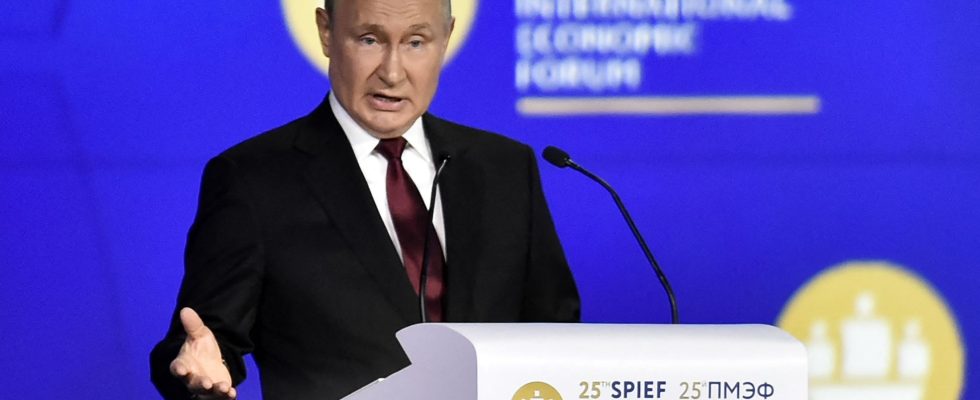It seems a long time ago when Western leaders and foreign investors flocked to Saint Petersburg to meet the Russian elites. Sixteen months after the start of the war in Ukraine, the 26th International Economic Forum opened on June 14 in a completely different atmosphere. Vladimir Putin wanted to make it an alternative to the Davos Forum, which each year brings together bosses of multinationals, intellectuals and political leaders. But the master of the Kremlin, who is counting on this meeting to forge links with the countries that travel there, is increasingly isolated on the international scene.
Few countries represented
Journalists from countries “hostile” to the Kremlin were simply barred from accreditation. The list of guests, it looks rather gray, while the Russian president relies more and more on the countries of the South on the economic level. However, Xi Jinping did not make the trip this year, like the Kazakh leader Kassym-Jomart Tokayev and Milorad Dodik, President of the Serbian Republic of Bosnia and close to Vladimir Putin. Lula’s Brazil also declined the invitation.
Algerian President Abdelmadjid Tebboune, for his part, responded to the call “in the context of strengthening cooperation between the two friendly countries”, according to the press release from the presidency. The only country in the European Union not to actively support Ukraine in the war between it and Russia, Hungary will also be present through its Foreign Minister, Peter Szijjarto, while a delegation of the United Arab Emirates will be honoured. During the 2018 edition, it was France and Emmanuel Macron who had been put forward.
Last year, this major meeting was mainly transformed for Vladimir Putin into a platform on the war in Ukraine. The Russian president had stepped up attacks against the West, denouncing in particular the measures taken against the country’s economy.
On the menu of the event this time, conferences with a striking title, such as “dedollarization, the future of money”. Representatives from several countries under Western sanctions, such as Nicaragua and Venezuela, will discuss how to deal with their asset freezes.
Tribune on the war in Ukraine
The regions of Donetsk, Kherson, Luhansk and Zaporijia, annexed by Russia at the end of September 2022, are also honored through stands praising their production of aluminum or ice cream cones. On site, too, representatives of the country’s automotive industries, such as Lada, but also tech companies.
Since the invasion of Ukraine, Russia has suffered heavy international sanctions from the European Union and the United States. 300 billion euros from the Russian Central Bank are notably frozen in accounts in the West. In April 2023, the ruble, the national currency, had reached its lowest level against the dollar since the start of the invasion.
